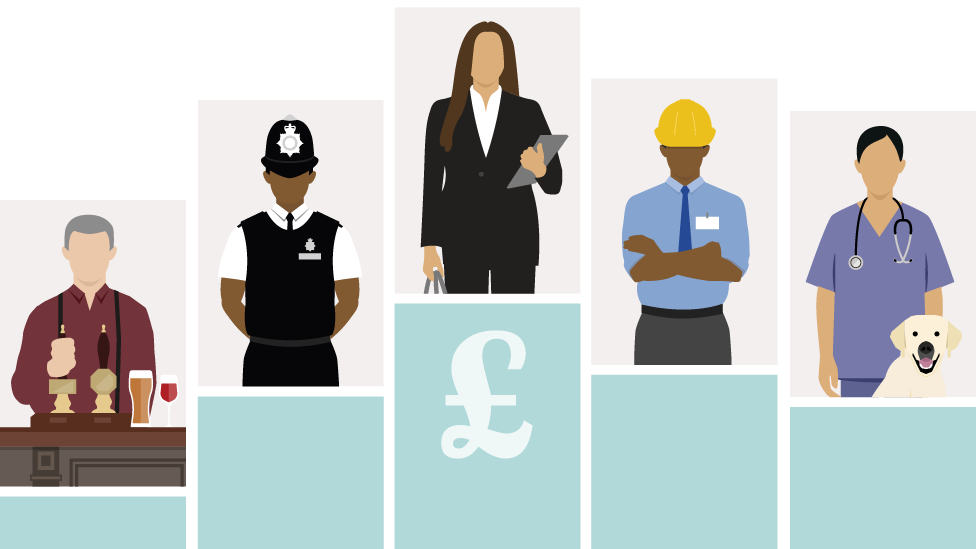#OutOfOffice: How women are marking Equal Pay Day
- Published
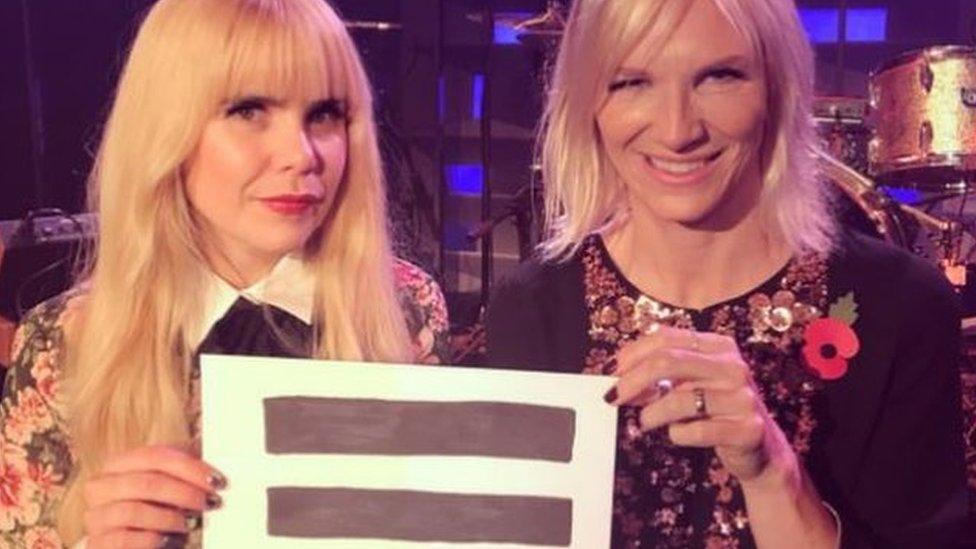
BBC Radio 2 presenter Jo Whiley tweeted a picture of herself with the singer Paloma Faith
Ladies, you are, in effect, working for the rest of 2017 for nothing.
So says the Fawcett Society campaign group, which has dubbed 10 November "Equal Pay Day" - raising awareness of the date from which women work for free because of the difference in average pay between men and women.
Hundreds of thousands of women, including some MPs and BBC presenters, are calling for an end to the pay gap, which is 18.4% on average in the UK.
Send some of them an email and you'll receive an automatic reply telling you they are "Out of Office" until the end of the year - even though they are at work.
Women's Equality Party leader Sophie Walker says her party is urging women to set their autoreplies to help people "join the dots".
'Lessons learned'
As a self-employed gardener, Natasha Ransom, 36, from North Thanet, is not office-based so she left an "out of office" voicemail on her phone instead after looking up the gender pay gap in her area and finding it sits at 20.9%.
"I'm doing it to support those on lower wages - I work for a lot of elderly people whose [female] carers are on such poor wages," she says.
Angela Perrett, a nurse from Bristol, tweeted her support, saying: "Always amazed on #EqualPayDay that so many men try to mansplain to women that it doesn't exist or is down to job choices #OutOfOffice."
Allow X content?
This article contains content provided by X. We ask for your permission before anything is loaded, as they may be using cookies and other technologies. You may want to read X’s cookie policy, external and privacy policy, external before accepting. To view this content choose ‘accept and continue’.
MPs, including Labour's Yasmin Qureshi, Dawn Butler and London Mayor Sadiq Khan, and Liberal Democrat Norman Lamb tweeted their #PayGapPledge to work on closing the gap.
Meanwhile, BBC Radio 4 Today presenters Mishal Husain and Sarah Montague, broadcaster Victoria Derbyshire and BBC Radio 2 presenter Jo Whiley tweeted their support alongside the Equal Pay Day flag of the equals symbol.
Husain tweeted: "Closing the gender pay gap is about equality. It should matter to everyone #equalpayday."
The gender pay gap at the BBC has been exposed with men found to be earning an average of 9.3% more than women.
Paid less than your colleagues? Email haveyoursay@bbc.co.uk, external
BBC news correspondent Orla Guerin wrote: "When I started full-time work, in 1985, never occurred to me that I or any female colleague might be paid a penny less that a man for the same work. Have learned some lessons since then. #EqualPayDay."
Meanwhile, Sky News anchor Kay Burley served up her support, tweeting: "It fills my heart with joy to know women now work for free to the end of the year while their male counterparts continue to pocket a salary."
Starting salaries
According to the Fawcett Society, the gender pay gap has not only stalled - with Equal Pay Day not budging for three years - but is now widening for some women.
The society says the pay of younger women in particular is falling behind that of men, claiming the drive to equalise pay is going backwards and will now take 100 years to close.
The pay gap for women in their 20s has grown from 1.1% in 2011 to 5.5% this year, it says.
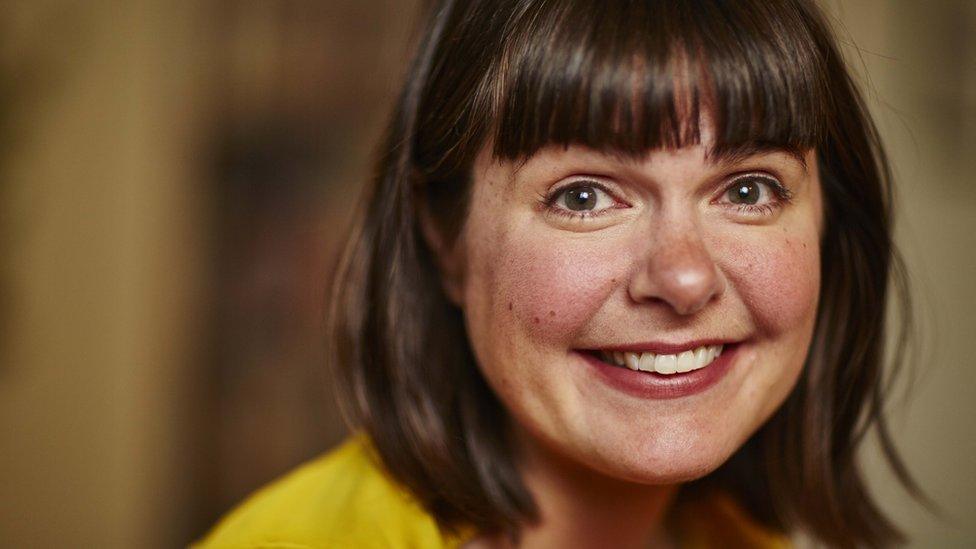
Joeli Brearley says employers often think they are better than they really are
Female graduates start on £2,000 - £3,000 less than their male counterparts, the society's chief executive, Sam Smethers, told BBC Radio 4's Today programme, adding that female apprentices take home about £1,000 less a year.
Joeli Brearley, 38, from Manchester, who was sacked the day after telling her boss she was pregnant and now runs the campaign Pregnant then Screwed, said many employers think they are better than they really are.
She urges women to join women-only networks within their profession for support, advice and information.
Ms Bearley says employers often say they "respect" women, and champion specific examples of women who are doing well in their organisations but are are "not looking holistically" - at how they are treating all their female employees.
Under new government rules, all companies with more than 250 employees will have to report their gender pay gaps by April 2018.
The government is also encouraging companies to publish an "action plan" alongside their figures, outlining steps they will take to close the gender pay gap within their organisation.
But Ms Smethers says they should go further: "We need companies to commit to an action plan and to chart a course for closing that pay gap in their own organisations."
As for the government, Ms Walker says it needs to start joining the dots between the gender pay gap and sexual harassment. "These are the cause and effects of women's inequality," she adds.
- Published10 November 2017
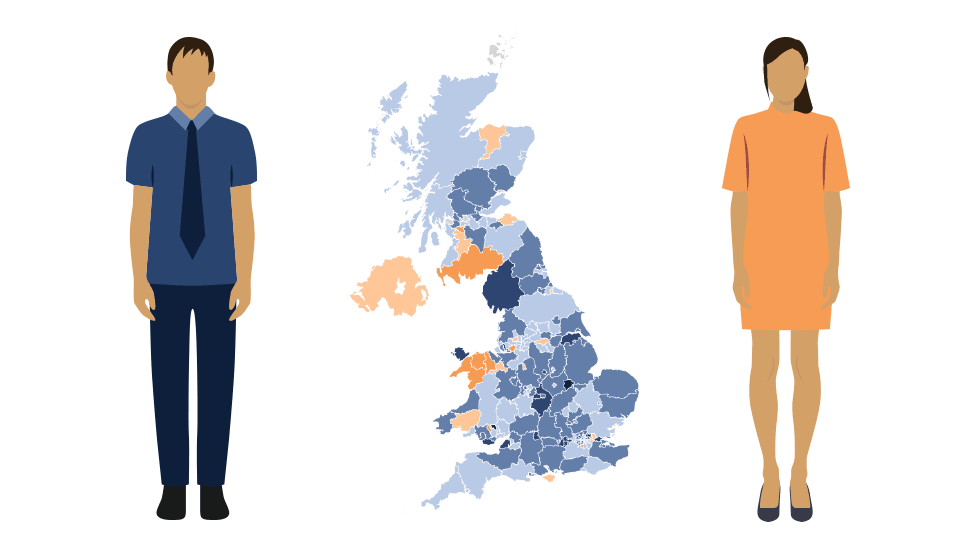
- Published10 November 2016
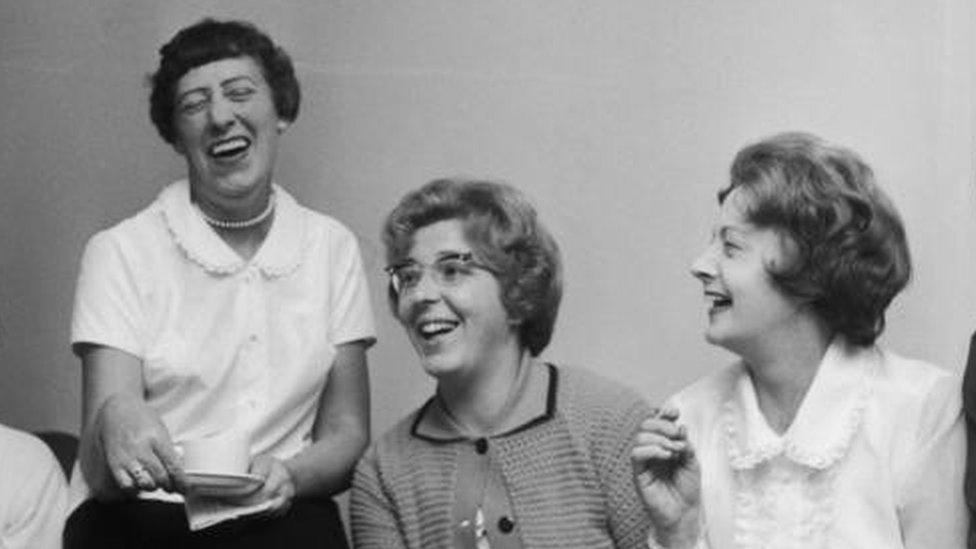
- Published4 September 2017
